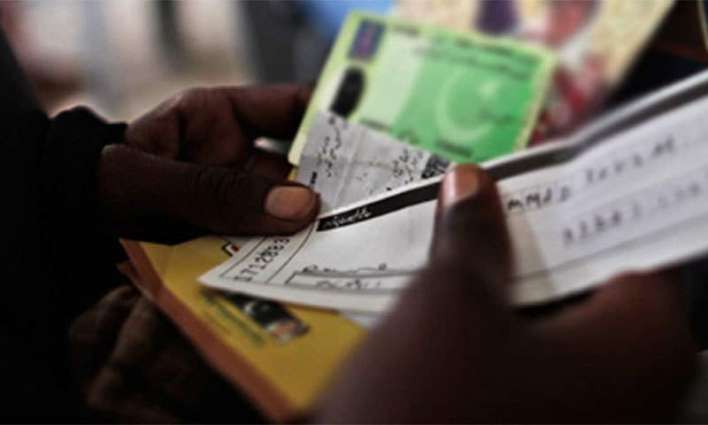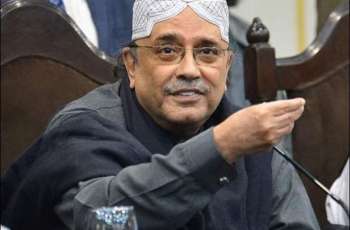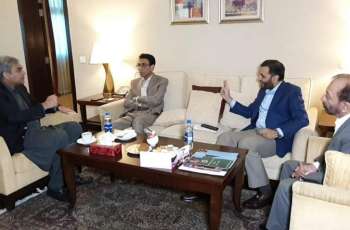National Database Registration Authority should rapidly conclude the issue of blocked computerized National Identity Cards (CNICs), these directions were passed by Standing Committee on Government Assurances, during its meeting, on Tuesday
Islamabad (Pakistan Point News / Online - 19th March, 2019) National Database Registration Authority should rapidly conclude the issue of blocked computerized National Identity Cards (CNICs), these directions were passed by Standing Committee on Government Assurances, during its meeting, on Tuesday.The meeting was held in the Parliament House under Chairmanship of Malik Muhammad Amir Dogar, the Chief Whip of the Ruling Party. The Committee was informed, during the meeting, that Pakistan Code could not be published because the staff employed on this project had been terminated due to end of the project and non-availability of funds.
It was told that the case had been sent to the Establishment Division for approval. Soon after the approval, new staff would be hired. The Standing Committee directed that the amendments passed by the legislature in Section 182 of Pakistan Penal Code should be incorporated in the Pakistan Code and a certified copy of the same should be furnished to the Committee within seven days.The Standing Committee recommended that Pakistan Code might be published forthwith.
The Committee directed that Establishment Division should fulfill its responsibilities in this regard, without further delay. The Standing Committee was briefed by the representative of KPK Government about the issue of detention on the basis of Regional Responsibility.The Committee was told that, as per information collected from all seven districts of FATA, no one was under detention on the basis of Regional Responsibility on 18th March 2019.
The Standing Committee was informed by the NADRA that there were about 150,000 blocked CNICs in the country. Whereas, in FATA only, 5800 CNICs are blocked and over 1600 cards have been cleared and some cards were cancelled because they were found bogus.The Standing Committee expressed its grave concerns on the slow speed of NADRA and directed that each District Level Committee (DLC) must ensure to hold at least two meetings in a month and should cancel all bogus CNICs and should restore all genuine CNICs of Pakistani citizens, immediately.
The meeting was presided over by the Chairman Standing Committee of National Assembly on Government Assurances, Malik Muhammad Amir Dogar and attended by Members National Assembly Mujahid Ali, Sheikh Rashid Shafique, Chaudhary Armaghan Subhani, Usman Ibrahim, Muhammad Afzal Khokhar, Syed Javed Ali Shah Jillani, Syed Ghulam Mustafa Shah, Sajid Khan and Gul Dad Khan, MNA.In Addition, Secretary Parliamentary Affairs Division, Secretary, Law and Justice Division, Additional Secretary, Ministry of Interior, Director General (Operations), NADRA and others senior civil officers were also present in the meeting.
The Ministry of Finance strongly refutes the impression created by Government of Sindh that there is delay in transfer of resources from the federal government to provinces.The spokesman of Finance Ministry said in its clarification that it needs to be noted that FBR reports revenue collection to Finance Division twice a month (on 17th and last working day of the month).The shares of the provinces are transferred on the same date as per the NFC formula.
No amounts are withheld by Finance Division.The spokesperson said that during the first 8 months of the current financial year an amount of Rs.312.2 billion has been provided to Sindh as part of its share in the collected revenue. In addition an amount of Rs.57.5 billion has been provided as arrears for the last year.Overall, the Government of Sindh has received Rs.27.1 billion more during the current financial year (July 2018 - February 2019) compared to the same period of last year.
It seems that the claim of shortfall is based on the assumption that revenue collection is evenly spread during the 12 months of the financial year, which is not the case. Historically during the initial months of the financial year, the collections remain on lower side compared to the later part of the year with the highest collection recorded in June of every financial year. The Federal and Provincial fiscal authorities are aware of this fact and plan their expenditures accordingly.





